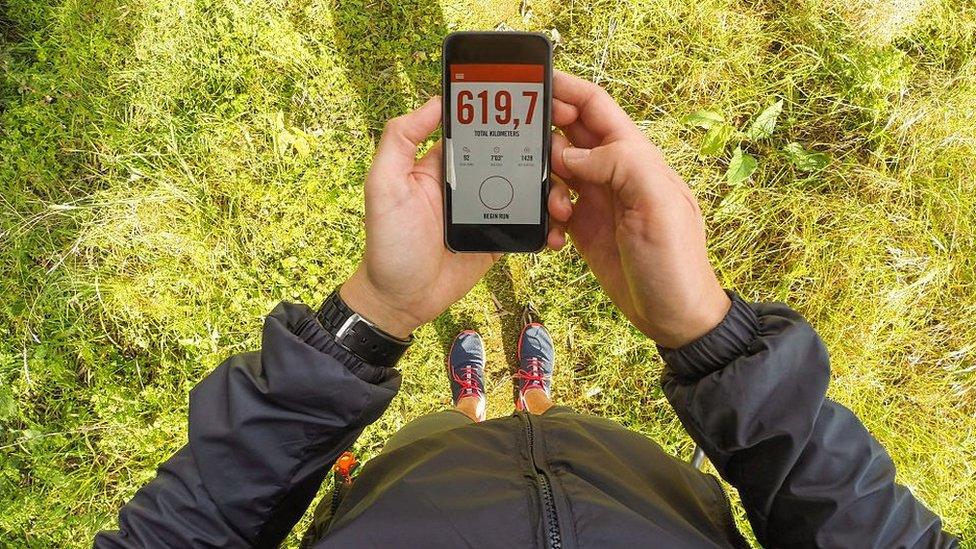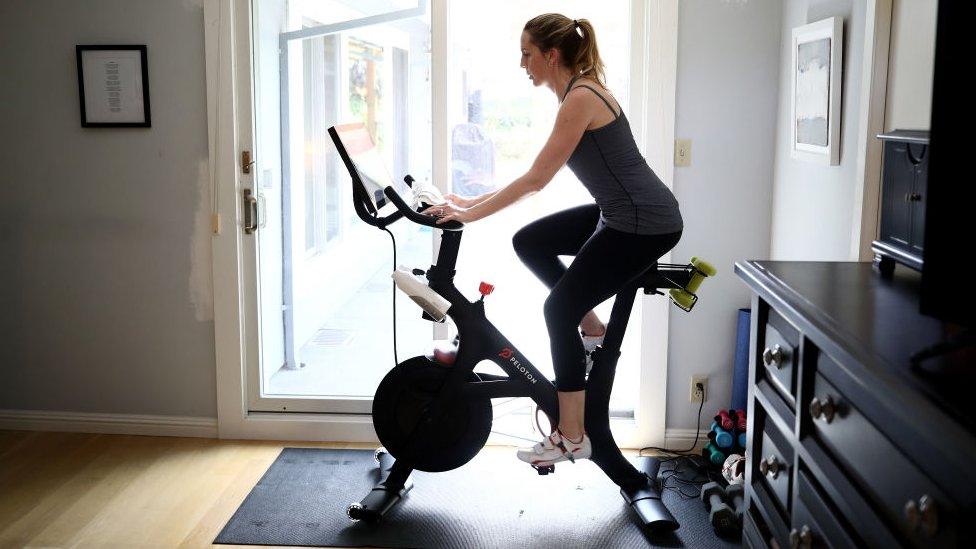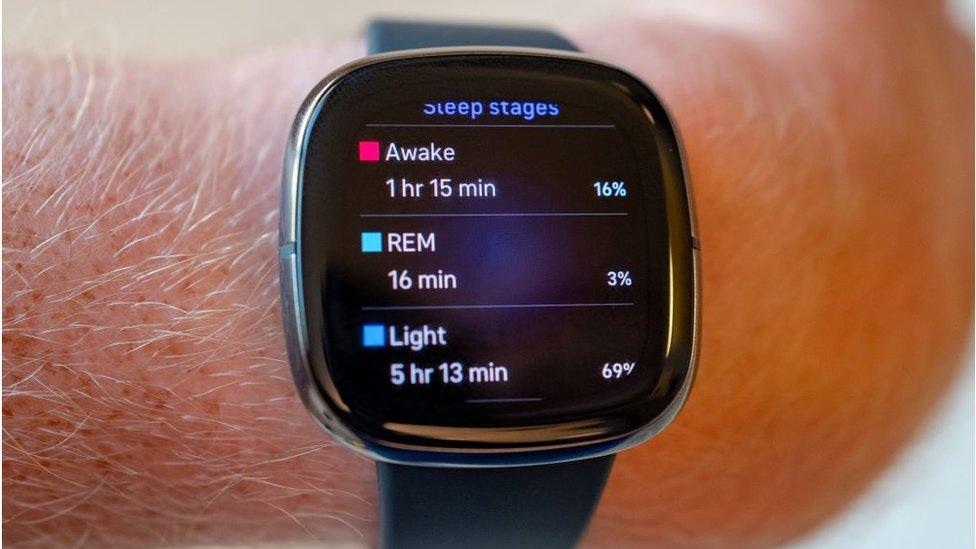Be a 'secret agent' and other new ways to exercise
- Published

The BBC's Justin Harper testing out a running app in Singapore
It might have been one of my regular runs around the streets of Singapore, but the experience was spiced with danger.
I was the hero in my very own spy story, speeding from one checkpoint to another to foil the bad guys.
The plot came from a running app called Running Stories, which casts you as a secret agent in a story playing out with a heart-thumping soundtrack.
It is one of the latest apps designed to make exercise more entertaining, using real-time data that integrates the plot with your surroundings.
Key events in the storyline are triggered when a runner passes specific GPS markers and landmarks.
From being shot at by snipers to racing to catch a speedboat along the river, the plot kept me engaged and burned plenty of calories.
Despite the scorching sun, I managed to complete the mission, save the day and fight the flab.
These new breed of apps are designed to motivate those who don't normally enjoy running while encouraging new runners to take up the sport.
For seasoned runners they offer the chance to add in short sprints to get the heart rate up during your exercise.

Smartphones are helping us track our fitness goals
"It gets you to explore new routes by using real-time data that turns your run into a story. It's like Hollywood, Silicon Valley and your personal coach had a baby," says Joakim Borgstrom, creative lead for the app.
Running Stories is being piloted in Singapore with plans to roll it out in cities around the world.
"We want to make the app available as an open source platform so that writers and creators can devise their own stories.
"There are also plans to incorporate more real-time data like weather conditions and the runner's heart rate to enrich the experience," Mr Borgstrom adds.
And if horror movies are more your thing, imagine being chased by zombies.
Originally released in 2012, the Zombies, Run! app, developed by British studio Six to Start, has been downloaded almost 10 million times and half a million people run with it every month, according to the company,


Its biggest market is the US, followed by the UK, Canada and Australia.
"The idea came from two places - I'd always wanted to make running more fun, and I was convinced that an audio-only game would be a perfect fit for an activity where you can't look at your phone," says founder Adrian Hon.
Six to Start is now moving beyond zombies and adding science-fiction, historical and romance stories, Mr Hon told the BBC.
During the pandemic and the associated lockdowns, some fitness companies saw sales skyrocket, including exercise-bike firm Peloton. But will such trends last?
"We believe the shift to at-home fitness has been under way for some time, just as you've seen films shift from the cinema into the home and video games from arcades to the home, where you can get a higher quality experience on your own time," Kevin Cornils, international managing director at Peloton, told the BBC.
Peloton has seen huge sales of its premium-priced bikes during the pandemic and can count Usain Bolt, David Beckham and Michelle Obama among its celebrity fans.
"People will continue to realise that they can get that same motivation that they used to get in a gym from the comfort of their own home so I do see the current trends continuing," Mr Cornils adds.

Sales of exercise bikes boomed while gyms were closed
One of Peloton's big attractions is its connectivity. The bike's onboard technology can connect with other riders so you can race against others in your own virtual Tour de France, or take part in real-time classes with an instructor online.
Other companies offer similar products. "We are finding a strong surge in connectivity among the younger generations and this will not be isolated from fitness," says Lou Lentine, chief executive of Echelon Fitness, a rival to Peloton.
But is he worried people will go back to gyms once the pandemic is over?
"I think people will continue to go to the traditional gym, but due to convenience and other factors there may be a hybrid experience where people are continuing to incorporate connected fitness," Mr Lentine says.
Wearable technology like fitness trackers have seen strong growth in the last few years.
From $3.2bn (£2.4bn) in 2018 the industry is expected to grow to $5.1bn this year and $6.2bn in 2021.
As they evolve, wearable devices are moving beyond the traditional realm of fitness.
"The evolution of wearable devices mirrors the changing way that people think about fitness. Many are no longer satisfied with tracking basic indicators such as their weight, height, and how many steps they take in a day," said a spokesman for Fitbit.

Wearable fitness trackers are giving us more and more data
Instead, the brand has seen a desire from users to move away from "body fit" to pursue other aspects of fitness such as mental wellness, sleep quality and heart health.
"The future of fitness and wearables is about making the invisible visible - unlocking even more information about our bodies to take better control of our health and wellness," the Fitbit spokesman added.
Metrics being introduced include heart-rate variability, skin temperature and SpO2 sensors, which measure oxygen levels in your blood.
Along with helping people to stay fit, such innovations have the potential to serve as an early warning system that something has changed in your wellbeing.
With no vaccine yet developed for Covid-19 and global spikes in infection rates, the demand for such health technology is stronger than ever.
So what's next for exercise technology? Experts say the driving forces are technological advances such as artificial intelligence (AI) and a change in behaviour in a post-Covid world.
One day in the near future all aspects of fitness, from devices, to food, to training videos, will be brought together in one service, says Sid Pathak, an expert in consumer industries for Kearney, a management consulting firm.
"While individual solutions exist for everything - an intelligent weighing scale, a heart-rate monitor, a tracker - they don't talk to each other and provide the consumer a one-stop solution," he says.